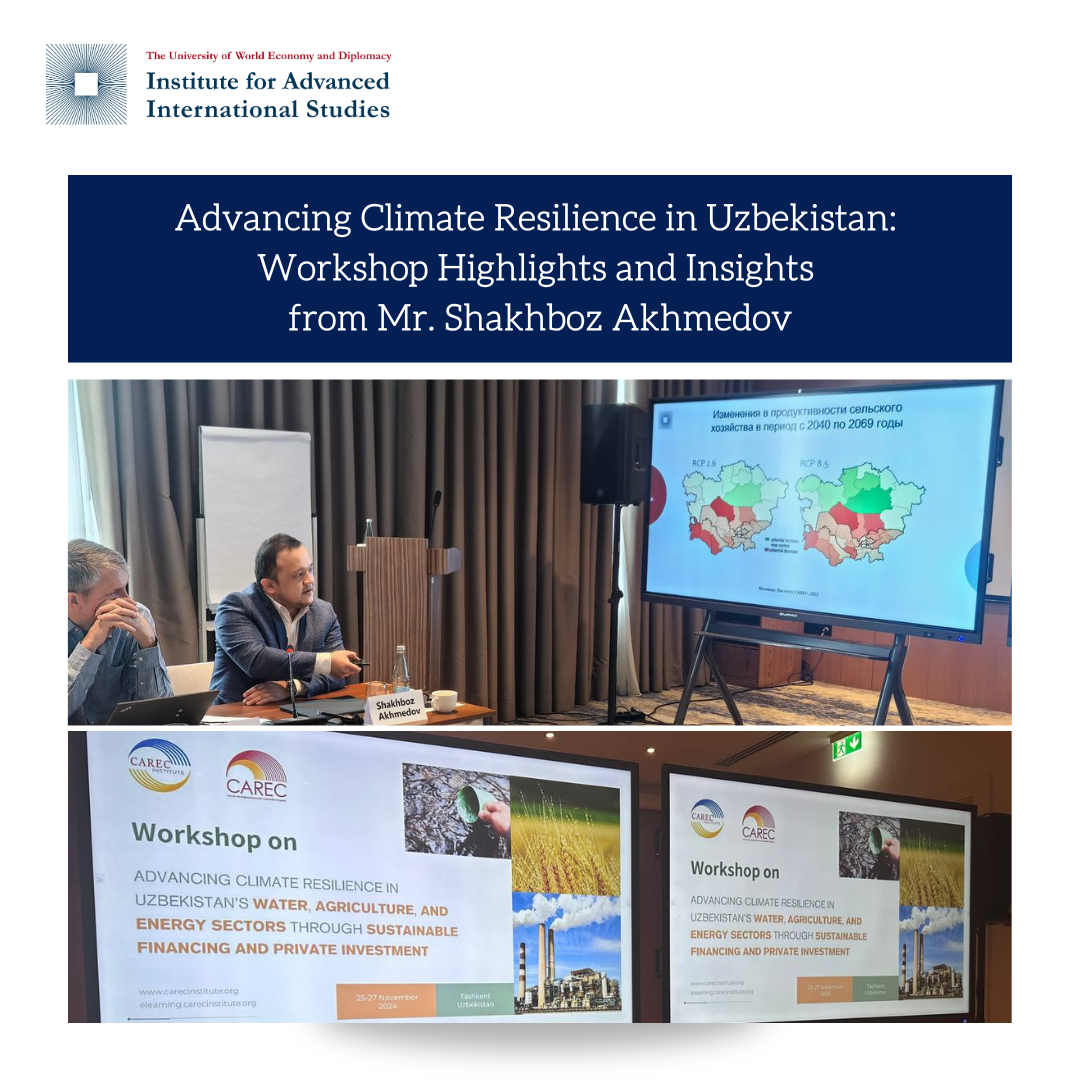
A three-day workshop titled “Advancing Climate Resilience in Uzbekistan’s Water, Agriculture, and Energy Sectors through Sustainable Financing and Private Investment” is being convened in Tashkent on 25–27 November. Organised with the support of the Asian Development Bank (ADB) and the CAREC Institute, this significant event brings together a wide expert audience from Uzbekistan and beyond to discuss the challenges and opportunities in fostering climate resilience across vital sectors of the national economy.
The agenda covers a broad spectrum of issues, ranging from water resource management and agricultural sustainability to innovative energy solutions. Expert-led sessions provide deep insights into Uzbekistan’s strategic priorities and the region’s unique challenges. Notably, sessions on innovative financing mechanisms, regional cooperation opportunities, and the water-agriculture-energy nexus are underscoring the importance of integrated approaches to sustainable development. Distinguished speakers add depth to the discussions with their expertise on climate inaction and policy frameworks.
One of the keynote speeches delivered by Mr. Shakhboz Akhmedov, Deputy Director of the Institute for Advanced International Studies was pivotal in shaping the dialogue on climate-resilient agriculture. His presentation titled “Existing Policies and Proposed Reforms to Support Climate-Resilient Agriculture in Uzbekistan” provided a comprehensive overview of national frameworks aimed at addressing vulnerabilities in the agricultural sector. He elaborated on critical legislative measures, including the Strategy for the Development of Agriculture for 2020–2030, which prioritises food security, the rational use of natural resources, and investment in sustainable agricultural technologies.
Building on these insights, Mr. Akhmedov also presented a case study on “Innovative Agricultural Practices for Climate Resilience”, illuminating practical solutions for enhancing agricultural productivity while mitigating the effects of climate change. Emphasising the importance of regional cooperation, he advocated for shared strategies to optimise water usage, adopt advanced irrigation technologies, and reduce dependency on water-intensive crops. His forward-looking approach resonated strongly with participants, underscoring the need for coordinated policy efforts and capacity-building initiatives.
The workshop is expected to be concluded with a renewed sense of urgency and optimism. Key takeaways included the necessity of integrating policy frameworks with innovative financing solutions and fostering collaboration across sectors to achieve long-term sustainability. The discussions set the stage for future partnerships and actionable strategies to strengthen Uzbekistan’s resilience to climate challenges. As Uzbekistan advances towards its sustainability goals, the insights shared by experts will undoubtedly play a crucial role in shaping the nation’s path forward.